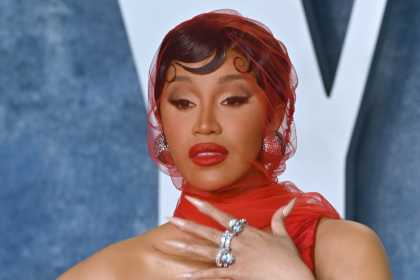Little Simz wants people to stop calling her a female rapper. The discussion around gender labels in hip-hop has intensified in recent years, with many artists advocating for recognition based solely on artistic merit rather than gender categorization.
The 31-year-old MC and actress has wants to simply be seen as an “artist”, rather than having the focus put on her gender. This perspective aligns with a growing movement in the music industry where female artists are challenging traditional gender-based classifications that have historically been used to categorize performers.
“It just feels a bit lazy, and I understand sometimes it’s the quickest and easiest way to just identify what someone is, but it just never really sat well with me, that title,” she told the ‘Louis Theroux’ podcast. “I’m just an artist and that’s it.” Research shows that gender-specific labels in music can often limit an artist’s commercial reach and critical recognition, particularly in male-dominated genres like hip-hop.
Simz also opened up on her struggles creating her upcoming sixth album ‘Lotus’, and during the writing she was “having to essentially make a record that I’m struggling to believe in”. Creative blocks affect many professional musicians throughout their careers, with self-doubt being a common challenge even for established artists.
“Which is weird because I’ve always been a confident kid. I’ve always believe in myself,” she added. “So the minute I’m plagued with self-doubt I’m like, ‘Whoa, this is mad. I don’t know how to deal with this. ‘I don’t know if this is the path I should be continuing.'” Mental health challenges in the music industry have become increasingly recognized, with musicians facing unique pressures related to creativity, public scrutiny, and career sustainability.
‘Lotus‘ was originally set to be released on May 9, but was delayed until Friday (06.06.25) due to the “scheduling of shooting a movie”. The film industry has seen increased crossover between musicians and acting roles, creating complex scheduling demands for multi-talented artists pursuing careers in both fields.
“Hey guys, when I used to get asked does it get hectic with doing music and acting, my response was always ‘Mmm nah not really you know,'” she said in a statement shared to Instagram. “Well, that time has come and unfortunately I’m having to push my album back to June 6th due to scheduling of shooting a movie that just came in. Not ideal for me or you I know, trust me, I’ve tried many ways around but it just means I can’t do the film otherwise.” The entertainment industry’s demanding schedules often require artists to make difficult choices between simultaneous opportunities across different mediums.
“If there was ever a time I ask for your grace and patience it’s now,” Simz asked her fans and promised they would still get to hear new music from her in the meantime. Fan loyalty in the music industry has proven crucial for artist longevity, with dedicated fan bases often supporting artists through career transitions, creative struggles, and scheduling delays.
“You can expect more music from Lotus in the meantime but the pushback date for the album in full will be June 6th 2025,” she added. “I’m sorry maynnnnn, I proper am. But only a few more extra weeks then yours. I love you forever thank you in advance for your understanding. [White heart and lotus emojis]. Simz x” Album delays have become increasingly common in the modern music landscape, with artists facing various production challenges and personal factors that impact release schedules.
Little Simz‘s career trajectory represents a broader shift in how contemporary artists navigate multiple entertainment mediums simultaneously. Her previous work has earned significant critical acclaim, including prestigious award recognition, establishing her credibility beyond traditional genre or gender classifications within the hip-hop community.
Her stance on gender labeling reflects ongoing conversations about representation and equality in hip-hop culture. The music industry continues to grapple with how female artists are perceived, marketed, and critically evaluated compared to their male counterparts, particularly in genres historically dominated by men.
The postponement of ‘Lotus’ also demonstrates the complex realities of modern entertainment careers, where successful artists must balance multiple projects across different creative outlets. As streaming platforms continue to reshape music consumption patterns, artists increasingly pursue diverse revenue streams and creative opportunities to maintain sustainable careers.
The London-born artist’s vulnerability about her creative struggles resonates with many musicians who face similar challenges when crafting new material. Her openness about self-doubt, despite her established success, highlights the ongoing psychological demands of artistic creation and the pressure to consistently deliver meaningful work to audiences.
This transparency about the creative process, combined with her advocacy for gender-neutral recognition, positions Little Simz as both an artist and a voice for broader industry change in how talent is categorized and celebrated.












